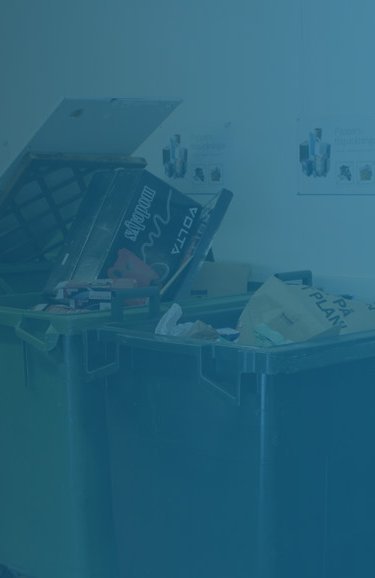
How can we get rid of unnecessary expenses in the hospital business?
The European Commission reports that tourism contributes to 6.7% of Europe’s total waste, making waste management, especially of plastics and cardboard, not just an environmental concern but also a financial one. Implementing waste reduction measures is not only eco-friendly but also enhances the profitability and reputation of hospitality businesses.
Integrating Waste Reduction into Hospitality Excellence
On average, the hospitality sector generates nearly half a kilo of unsorted waste per guest per night. Actively reducing this amount can significantly lower environmental impact and cultivate a distinctive brand identity for a business in the hospitality industry.

Strategies to Combat Single-Use Waste Single-use items, such as sachets and packets, are major contributors to waste within the hospitality sector. Simple solutions include replacing single-serve items with pump dispensers for soaps and lotions, serving jams and condiments in jars and bowls, and sourcing baked goods from local producers. These practices not only reduce waste but also cut down on unnecessary expenditure.
Facilitating Guest-Participated Recycling Empowering guests to participate in recycling efforts can streamline waste management processes. By providing designated recycling areas for separating plastics and paper, businesses can simplify their waste handling and optimize the use of compactors and balers to decrease transportation costs.
Water Conservation Measures The hospitality industry has significant potential to save water. Implementing measures such as installing press-button taps, encouraging guests to reuse towels, and covering swimming pools when not in use can lead to substantial water and cost savings.
Upcycling for Cost Savings and Creativity Upcycling presents an opportunity for hospitality businesses to creatively reduce waste. Repurposing items like old furniture for staff areas, refurbishing damaged goods, and transforming glass jars and bottles into decorative pieces can contribute to both aesthetic appeal and cost efficiency.

Cultivating a Waste-Conscious Mindset
Shifting the mindset within the hospitality industry from consumerism to sustainability is key to effective waste reduction. This involves rethinking how resources are used to enhance customer satisfaction. Practical steps include:
- Utilizing digital platforms like apps for menus and facility guides, instead of printed brochures.
- Offering digital solutions for guest inquiries, such as using Google Maps instead of paper maps.
- Opting for reusable items, such as fabric napkins, over disposable ones.
Training staff to embody and communicate a business’s commitment to waste reduction not only fosters a positive environmental impact but also distinguishes a brand in the competitive hospitality market. By integrating these practices, hospitality businesses can achieve sustainability, enhance guest experiences, and improve their bottom line.

Have a question?
Get in touch today to learn more about how Mil-tek can help your business save time, space and money by better handling waste
Get info about a product or have a chat with one of our local reps. Let us know what you need so the right person can get in touch.